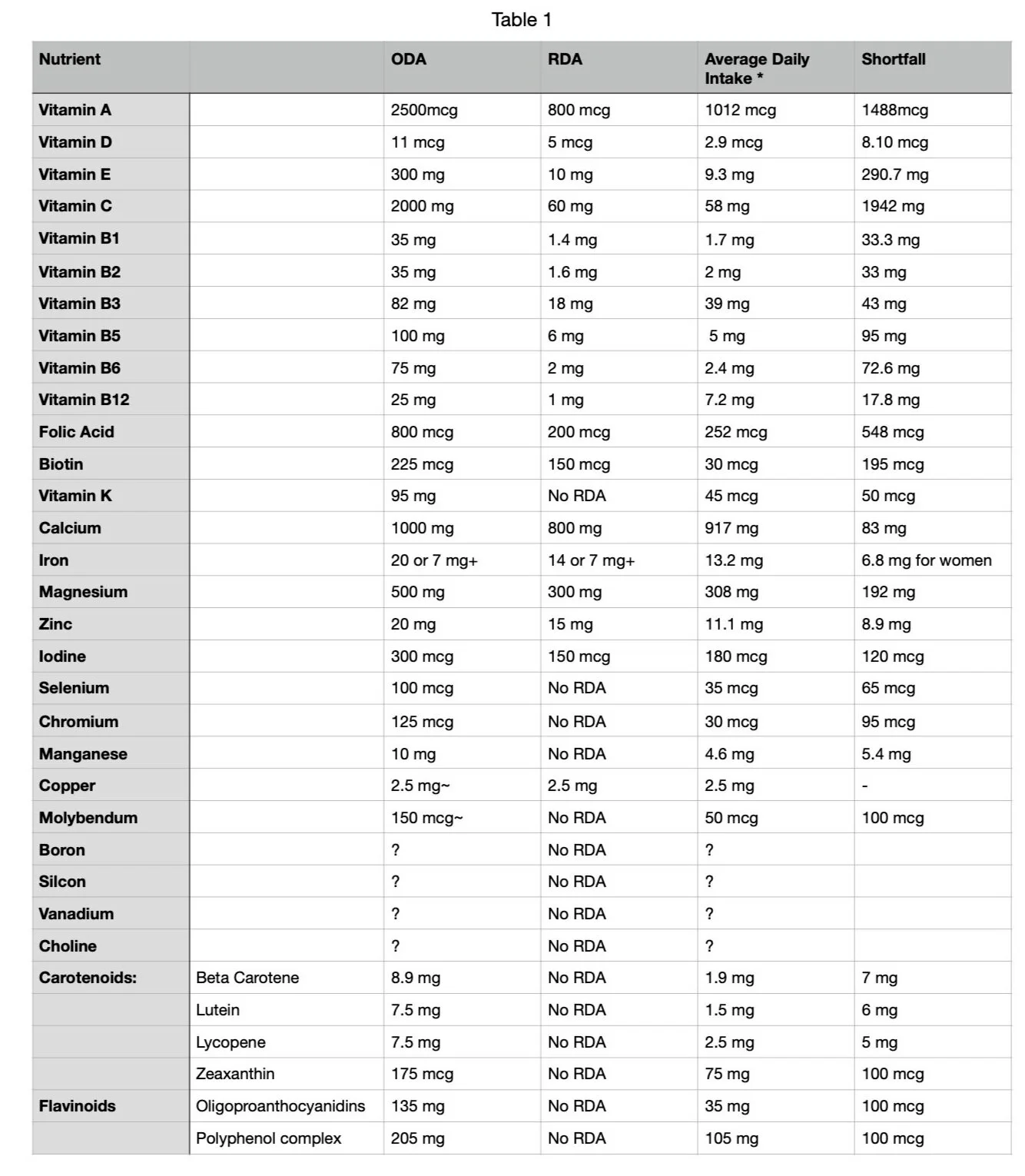Amplify with Supplements
Supplementing is a big industry, in fact its projected to be a $230.7 Billion market by 2027. If so many people are buying supplements, then they need to be offering some value, right? I am a believer in supplementing and have for quite some time. For me its not just that my diet might be lacking one or more nutrients at any given time but also that we have identified so many benefits food substances (adaptogens, cordyceps, flavonoids, superfoods) that my typical grocery store doesn’t stock on its shelves. To received the benefits are these awesome super-nutrients the only choice is to supplement with them. Because a supplement is simply “something that completes or enhances something else when added to it.“ And if you are reading this then you are someone who seeks to add to, enhance or amplify your health too.
Today I will discuss some of the why’s you might want to supplement, what to consider and how to go about maximizing your health, with or without them.
Why?
Today foods lack enough nutrients. period. Decades of Mono-cropping, pesticides and poor farming practices have destroying our soil and therefore our fruits and vegetables are not as nutrient dense. We are also in a constant state of food availability meaning broccoli is gown across the world, picked before it’s even fully developed (aka before its ripe) and then shipped to you locally. Nutrients have a half-life, meaning the amount of nutrients in a food depleted over time. And this is all just considering fresh fruits & veggies. Which, the majority of the foods our populations choose to eat are highly processed and lacking any nutrients at all. Breads, pastas, cereals, box mixes… if any, the nutrients provided are fortified and our bodies hardly absorb or utilize then at all.
Our bodies are not absorbing all the nutrients. There are many individually unique reasons for this, and dependent on age, history and other factors.
Missing enzymes needed for complete reactions
Leaky gut
Poor ability absorbing nutrients
You just want a competitive edge or to enhancement your health. Supplements aren’t just vitamins and minerals, they are also amino acids, botanicals and herbs. Modern science and the ability to travel around this globe as opened our awareness to many things that are not grown locally. For example, Lingzhi, also known as reishi mushrooms (the ancient "mushroom of immortality") has grown in China at the base and stumps of 1 out of every 10,000 deciduous trees. Meaning its pretty rare. How would someone in upstate NY be able to find, grow or harness this power without supplementation? The only way to consume reishi to get the positive benefits it by supplementing.
Lifestyle choices either increase and/or decrease our demands of nutrients
Alcohol depletes B Vitamin, Vitamin C, most Minerals, Vitamin E & Antioxidants.
Smoking depletes Antioxidants
Exposure to pollutants depletes Antioxidants
Stress depletes all nutrients and especially Vitamin B & C
Pregnancy increases need for all nutrients
Allergies and frequent infections deplete Vitamin A & C, most Minerals and Antioxidants.
What to Consider?
Supplements are not regulated. The FDA has no say over what manufactures put in those bottles. So really, who know what’s really in there? See below brand integrity for more.
Supplements can come in various forms. Liquid, capsule, fortified in other foods, hidden in other products, topical. But more important to consider synthetic vs real. This is a topic that in truth requires its own post but the long and short is synthetic version are not utilized in the body as well as nutrients extracted from real nature sources.
Supplements can interact with other medications, supplements you are taking.
Manufactures can make claims on how it might impact your health or what the effect is on your body function but this is not a guarantee that it will.
Some supplements are effective while others are not. Kinda along the lines that these products are not regulated. A supplement can claim if has 30 IU’s of Vitamin E, but does it? The FDA hasn’t tested to ensure the quality of those claims. Depending on the brand, there might actually just be 2 IU’s and the rest is a filler, because like I said, this is a growing booming money making industry and if we’re being honest, some manufactures are not compassionate and only care about their profits. Not helping people. which brings me to….
Brand Integrity. Can you trust the manufacture of that supplement? Are they adding fillers for increased profits? Adding sugars that you don’t need? You can’t judge a book/brand by its cover/packaging. Just because a bottle looks cool, doesn’t mean the ingredients inside are what they claim to be. You have to do some due diligence anytime your introducing something into our body! Supplementing is no different.
There is a guiding body when it comes to supplements. US Office of Dietary Supplements (ODS) that does work to research and safe guard consumers.
Safety of products doesn’t just depend on “the supplement” but variations in
The chemical makeup - is it real or synthetic
How it works in the body - real has lots of cofactors which synthetic do not.
How it’s prepared / extracted.
The potency of the supplement
Are the supplements imported from overseas? there are defiantly more troublesome with false ingredients.
“Supplements are to humans as fertilizers are to plants.
Give a plant adaquate sun & water and it will survive.
Give it nutrient-richness and it will thrive. ”
How to:
Supplements are not a replacement for a healthy, balanced diet. A topic which could use its own post but there is not replacement of a healthy diet. If your taking every supplement known to man and still eating every meal at McDonalds, well, your not doing yourself any good taking the supplements except what my Chiropractor has told me “making expensive pee”
Gain more information to know what you need. Todays RDA’s are vastly out of date and do not consider variables in individuals like those discussed in above. For example, the need for a woman who is going into her first trimester are not going to be the same as a middle aged male with fatty liver. For that matter, the nutrient needs for a “healthy” male are vastly different from a chronically ill male. So…. all this to say that individual needs are vastly individual.
RDA’s represent “a minimum level set by Government in order to avoid a deficiency disease of a particular nutrient.” Doesn’t sound like its meant to make you thrive. There is another measurement known as the ODA’s Optimal Daily Allowance or SODAs (Suggested Optimum Daily Allowances) are “levels thought to be those required for full health and vitality.”
Research what you need. This may include meeting with a nutritional consultant (ME) and/or with your health care provider. You can say some symptoms and think you know, but without the guidance of a professional you could potentially do more harm than good. There are a couple that most people could benefit from that have no adverse effects, but its still wise to do your due diligence. We’ve only got one body so let’s treat it like gold.
Here are some brands I have learned about that I trust, some for their specialty in the bio-availability of their supplements (ie Four Stigmatic uses dual extraction to obtain the top level of nutrient density/quality).
Arbonne (strict ingredient policy, clinical trials/third party testing, sustainability sources ingredients, eco friendly packaging, B-corporation, non-GMO certified,
Garden Of Eden (multiple certifications, b corporation)
Onnit (natural ingredient sourcing, clinical trials, grass-fed, gluten free, No MSG, no Soy, no nitrates, no hormones, Informed Sport certification)
Four Stigmatic (sustainable & best quality sourcing, non-gmo, dual extraction)
Pure Encapsulation (Free from common allergens & artificial ingredients, ranking highest in ingredient purity, quality testing)
Nordic Naturals (non-gmo, third party testing, sustainably sourced)
Host Defense (NON-GMO verified, certified organic, grown in USA, bee friendly, GF certified, eco packaging)
Want to learn more - Click for Nutrient Fact sheets provided by National Institute of Health.
Here is a chart I made of RDA’s of most nutrients vs. ODA’s


